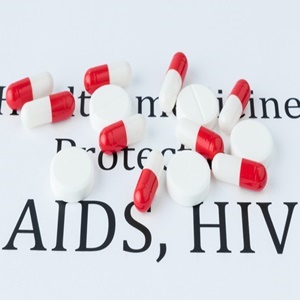
South Africa’s HIV programme is the biggest in the world, and according to the latest data of the Human Sciences Research Council (HSRC), good progress is being made in addressing the HIV epidemic in terms of the UNAIDS 90-90-90 targets (90% living with HIV know their status, 90% of these on antiretroviral treatment, and 90% with undetectable viral loads).
But close analysis of the data confirms that most of the gains are occurring in females. A telling example of this is the fact that the rate of HIV infection in females aged 15–24 has fallen from 2.04% in 2012 to 1.51% in 2017, whereas in males of the same age group HIV incidence has increased slightly from 0.44% to 0.49%.
Shorter lives
As HIV expert Dr Francois Venter said, the HSRC data shows that, compared to women, “men come in later and sicker, are less likely to take their therapy and more likely to drop out of treatment programmes”.
As a result, HIV positive men live shorter lives, and have higher mortality rates. Siyabonga Dube*, a patient at a male clinic run by Doctors Without Borders (MSF), suggests why men are being "overlooked" by the roll-out of HIV services.
“Men like their privacy,” he says. “It’s not easy for us to always be around women at clinics, where the lines are too long. We prefer to go to a place and do what we came there for quickly, and then go home.”
The HIV community is realising that male-adapted services are urgently needed to address the gap in outcomes for HIV between males and females. MSF in South Africa first began piloting male-adapted HIV services in 2007, after conducting surveys with men to better understand their challenges with standard healthcare delivery, and how services might be offered in more convenient ways.
Male-adapted services
Based on these insights, a series of approaches to getting more men testing for HIV and on treatment were trialed, including vertical clinics for males staffed entirely by male health providers offering a comprehensive health package, including treatment for sexually transmitted infections (STI); TB and erectile dysfunction screening and management; a male after-hours clinic integrated within a public health facility; mobile clinics; and outreach HIV testing activities in shebeens, train stations and other hotspots for men.
Our evidence suggests that some men who avoid standard care are attracted to male-adapted services. In two MSF-supported male clinics in Khayelitsha, for example, respectively 35% and 46% of male clients came in for treatment for STIs, compared to a much lower percentage reporting to other City of Cape Town Health clinics for the same reason.
The average age of males testing positive for HIV in the two male clinics is also slightly lower than the average for other City facilities — possibly indicating that male-adapted services could be more attractive to younger men that have proven difficult to reach. In an MSF-supported after-hours clinic for males in Khayelitsha, the percentage of HIV positive men that start therapy within 30 days is significantly higher than that for City clinics — 87%, compared to 57%.
Other interventions needed
But MSF has not been able to reach men in the numbers hoped for, even with these adaptations. The search for effective ways to bring HIV positive men into care is far from over, and needs to be prioritised now for the sake of men’s health, and in order to reduce transmission of HIV in communities.
Male-adapted health care services are a key component to shrinking the gap existing between women and men and bringing men to care, yet they are not enough on their own and should be accompanied by other interventions, including community awareness campaigns and innovative approaches that address obstacles to improving their health-seeking behavior. Only when men are engaged in a holistic way will we start to see significant gains in HIV indicators for men.
* Not his real name.
Laura Trivino-Duran and Bubele Makeleni are from Doctors Without Borders (MSF South Africa).
Image credit: iStock




 Publications
Publications
 Partners
Partners











